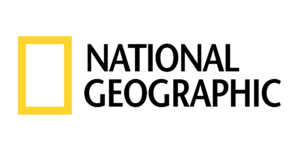The National Geographic Society currently offers three types of grant applications—Early Career, Exploration, and Requests for Proposals.
All proposed projects should be bold, innovative, and potentially transformative and have a primary focus in conservation, education, research, storytelling, or technology. Projects should also align to one of our three focus areas.
We do not usually consider applications that support strictly laboratory or collections work. Grants are awarded on the basis of merit and exist independent of the Society’s other divisions. Please note that this is a highly competitive grant program; we receive many more applications than we are able to fund.
We are currently accepting applications for all grant types until January 9, 2019.
Project start dates should be a minimum of six months after the submission deadline to ensure any awarded funds are received in time. Learn more about our review process and timelines.
EARLY CAREER GRANT
Early Career Grants are designed to offer less experienced individuals an opportunity to lead a project.
Grant projects last one calendar year or less. If you apply for more than one year of funding, your proposal will be sent back to you to revise and resubmit for the next deadline. Projects are typically funded for US $5,000 and cannot exceed US $10,000.
There is no maximum age limit for Early Career Grant applicants. However, applicants must be at least 18 years old at the time of application submission. Applicants are not required to have an advanced degree. Anyone with more than five years of professional experience in the field of their project focus does not qualify for an Early Career Grant and should apply for an Exploration Grant instead.
If you have previously received an Early Career Grant or a Young Explorers Grant from National Geographic, you may submit a new proposal after you have closed your previous grant record.
Visit our How to Apply section to learn more about eligibility requirements and how to prepare your proposal. Early Career Grant applicants must also submit a two-minute video that will be used to help evaluate the proposal. You may speak in your primary language, but if that is not English, you MUST add English subtitles or attach an English video transcript.
EXPLORATION GRANT
An Exploration Grant application is a request for funding by an experienced project leader in the areas of conservation, education, research, storytelling, and technology. The applicant and his or her team members are expected to demonstrate successful completion of similar projects with measurable and/or tangible results. If you have received a grant from National Geographic in the past, you may submit a new proposal after you have closed your previous grant record.
Grant projects last one calendar year or less. If you apply for more than one year of funding, your proposal will be sent back to you to revise and resubmit for the next deadline. Projects are typically funded for between US $10,000 and US $30,000.
Visit our How to Apply section to learn more about eligibility requirements and how to prepare your proposal.
REQUESTS FOR PROPOSALS
As part of supporting a planet in balance, National Geographic offers Exploration grants that concentrate on certain key issues. Applicants may propose projects focused in conservation, education, research, storytelling, or technology in response to the special Requests for Proposals (RFPs) listed below.
Visit our How to Apply section to learn more about eligibility requirements and how to prepare your proposal. Please see specific RFP pages for funding levels and acceptable project duration.
Documenting Human Migrations
We seek proposals from around the world that use storytelling and education to inspire empathy and action from citizens of all ages and policy-makers around migrant and refugee communities.
Uncovering Human Origins in Asia and Africa
We seek proposals from around the world that will encourage further investigation of hominid evolution in Africa and Asia, with preference given to projects in relatively unexplored parts of those continents.
Species Recovery
We seek proposals from around the world that will implement IUCN SSC Species Action Plans as well as conservation actions that are endorsed by the relevant IUCN SSC Species Specialist Group.
Big Cats Conservation
We seek proposals for field-based, action-oriented, and direct conservation efforts to halt the decline of big cats.
Making the Case for Nature
We seek proposals from around the world to advance the field of science communication by determining effective ways to market nature and inspire action.
Reducing Marine Plastic Pollution
We seek proposals from around the world that aim to reduce plastic pollution before it reaches the ocean, using innovative solutions that have the potential to scale.
Participatory Science
We seek proposals from around the world that will engage learners and avocational researchers in citizen science activities to address real world problems, strengthen science literacy skills, and lead to actions in science and conservation.
Conservation Technologies
We seek proposals from around the world that will advance breakthrough technologies to scale National Geographic’s efforts to explore, visualize, understand, and ultimately protect the planet.
To apply, click here.
















